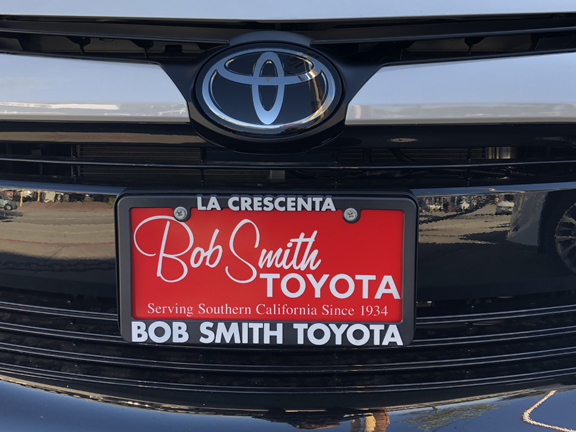By Charly SHELTON
Steve Jobs didn’t have a license plate on his car. It was a well-known aspect of his day-to-day life that he didn’t want to have a series of numbers and letters associated with his silver Mercedes SL55 AMG. Over the years, it was speculated that he just paid the fine when he was stopped, or maybe he had an inside man at the DMV who gave him an exemption, or maybe the government gave him this liberty in exchange for work on secret projects or new tech. The speculation was endless. That is, until 2011 when iTWire spoke with Jon Callas, CTO of Entrust, who had previously worked security for Apple. He divulged that Jobs didn’t have any of those much cooler ways out of getting a fine; rather, he discovered a loophole in the license plate law of California that allowed new cars to not have any license plate for up to six months after the purchase of a vehicle. So Jobs made an agreement with his dealership to switch his Mercedes out in the sixth month for an identical one, thus avoiding the need for a license plate. This also benefited the dealership, supplying it with a constant stream of cars whose previous owner was Steve Jobs – understandably a major selling point for buyers.
The “Steve Jobs loophole,” as it came to be known, was discussed in Sacramento and, in 2012, AB 1215 went into effect which reduced the unlicensed time of any vehicle to 90 days, halving the previous time allotment. But that 90-day window has also been eliminated with the implementation of AB 516, which was signed into law in 2016 and went into effect Jan 1, 2019. Paper plates or permanent metal plates must be affixed to a car – both on the front and back of the vehicle – before it is driven off the lot.
This is good news for public safety and a help to law enforcement officers because, unfortunately, Jobs was not the only one who wanted his car to be plate-less.
“When it comes to somebody wanting to commit a crime, the very first thing they’re going to do to remain anonymous is to take all the identifying markers off of anything they have, including the vehicle,” said Sgt. Dan Suttles, public information officer with the Glendale Police Dept. “So now that we have this law that every car shall have an identifying marker on it, whether it’s paper or an actual license plate, law-enforcement agencies and law-enforcement officers themselves have reason to enforce it across the board.”
Falsely attained paper plates will be no help to any getaway drivers as they have a very specific expiration date and are tied to a certain make and model of car. So swapping plates becomes much more difficult as well, and enables officers to see problems with a quick plate search.
“So if we see somebody [with a paper plate] we’ve got to give it a couple of months because the car that was bought Dec. 27, for example, is still going to have the paper plates,” Suttles said. “Once that timeframe goes by, now any car that doesn’t have some kind of registration information on it is susceptible to being pulled over. I think that’s going to play a large part in curbing these types of crimes and these ways of hiding because honestly if they decide to use paper plates to hide their car’s registration information, then they run a high probability of being pulled over. Before it was a relatively low chance of being pulled over. So now crooks have to come up with a different way of [hiding], which is basically more risky for them and translates into higher security for citizens.”

